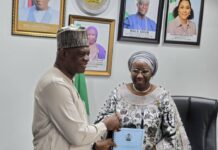By Niyi Jacobs
The National Bureau of Statistics (NBS) is set to rebase Nigeria’s Gross Domestic Product (GDP) in 2025, shifting the reference year from 2010 to 2019 in an effort to better reflect the current economic landscape. The new base year, chosen for its relative stability, will provide a more accurate picture of the economy, especially after the economic disruptions caused by the COVID-19 pandemic.
The rebasing process, which is expected to show a significant increase in GDP value, comes at a time when Nigeria is grappling with a range of fiscal challenges. The inclusion of sectors like digital services, fintech, modular refineries, and other emerging industries will contribute to the rise in the GDP figures. However, experts caution that this increase in GDP does not necessarily mean more money circulating in the economy or improved living standards for Nigerians.
According to the NBS, the rebase aims to capture a wider array of economic activities, including previously underrepresented sectors such as informal economic activities, pension fund management, and e-commerce. This more comprehensive data will also address gaps in the earlier 2010 base year, which only accounted for 14 sectors.
While the GDP rebase may result in a higher GDP per capita, which could be interpreted as an improvement in economic well-being, critics argue that it does not take into account the rising cost of living. The new GDP value may also mask the country’s fiscal health, especially as Nigeria’s tax-to-GDP ratio remains low and the country’s debt levels continue to climb.
For ordinary Nigerians, the rebasing may create a false sense of economic progress. While the figures may suggest a more prosperous nation, the reality of everyday struggles with inflation and high living costs remains unchanged.
As Nigeria moves forward with the GDP rebase, experts urge policymakers to focus on real economic reforms that can provide tangible benefits to citizens, beyond just an uptick in statistical measures














